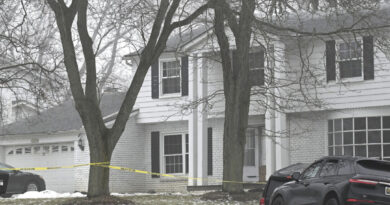US Appeals Court Stops Ballot Curing Initiatives in North Carolina Supreme Court Race
The court has made a 2–1 decision to suspend the most recent attempts in the ongoing election controversy.
This week, a U.S. appeals court has temporarily prevented North Carolina state elections officials from reaching out to voters whose ballots could be contested in the state Supreme Court race of 2024 and might be excluded from the final tally.
The notifications were intended to give voters a 30-day period to “cure” their ballots, which involves correcting any errors in absentee voting.
The order stated, “In furtherance of federal jurisdiction, we enjoin the North Carolina State Board of Elections from mailing any notice to any potentially affected voter pending the district court’s resolution of Riggs’ motion for a preliminary injunction.”
The ruling late Tuesday implies that state election officials are temporarily barred from implementing a process that was previously mandated by state judges, who earlier this month determined that voters in two specific categories were ineligible.
Most military or overseas voters would have a 30-day window to provide further identifying details to keep their ballots in contention. However, some voters may be unable to remedy their ineligibility and consequently face ballot removal.
The order on Tuesday indicated that granting a stay in this case was justified while Myers considers arguments from Riggs, the State Board of Elections, and others involved.
The state’s highest court criticized the Board of Elections for failing to ensure that voters had supplied the required information, citing “neglect and noncompliance with the law’s demands.”
The court noted, “Since the responsibility for the technical errors in voters’ registrations falls on the Board and not the voters, voiding ballots cast by those who subsequently verified their identities in accordance with the voter ID law would contradict the principle that ‘this is a government of the people, in which the majority’s legally expressed will must prevail.’”
Furthermore, the court asserted that there was no evidence indicating that a “significant number of the approximately 60,000 ballots in the first category were cast by individuals whose identities were not verified by voter identification or who otherwise did not qualify to vote.”
Earlier in the month, a state appeals court ruled that voters should be given 15 days to rectify their ballots; however, the Supreme Court’s directive changed that to 30 days.
Spokesperson for Riggs’ campaign, Dory MacMillan, stated to the media this week that the appeals court ruling temporarily prevents a “confusing and onerous cure process for ballots that were already correct,” while Griffin campaign spokesperson Paul Shumaker noted that they anticipate “ongoing litigation in this case” and expected the appeals court decision to prolong the final outcome.
The Associated Press contributed to this report.





